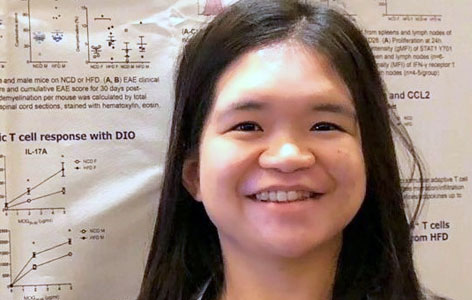
Conference: Americas Committee for Treatment and Research in Multiple Sclerosis (ACTRIMS) Forum, February 1–3, 2018, San Diego, United States of America.
Conference Highlight: The ACTRIMS Forum 2018 focused on potential targets for diagnosis and treatment of multiple sclerosis, which encompassed many topics including immune and glial cells and imaging.
Conference Summary: Over the past decade, several disease-modifying therapies (DMTs) for multiple sclerosis (MS) have been developed. However, the current therapies for this autoimmune demyelinating disease have negative impacts on the immune system. The conference included new findings on potential biomarkers and drug targets, and how current DMTs may affect the immune compartments.
Two presentations at the conference discussed possible biomarkers and drug targets and their negative impact on the central nervous system (CNS). Fibrinogen is an important blood clotting protein. It was found around blood vessels of CNS in animal models of MS and MS patients. Interestingly, from imaging studies of the CNS, fibrinogen deposition appeared to co-locate with microglia, CNS-resident immune cells. These deposited fibrinogen can activate the microglia to release molecular signals and to attract peripheral immune cells into the CNS.
Furthermore, there were important talks on the adverse effects of the current DMTs. One talk discussed alemtuzumab, an anti-CD52 antibody which was first used in the treatment of leukemia. After 1–2 years of treatment, some MS patients develop another autoimmune disease. With a long-term T cell lymphopenia, clonality of T cell receptors is reduced while there is an increased proportion of anti-inflammatory regulatory T cell subset. However, B cells are reconstituted properly, and their receptor clonality is unaffected with alemtuzumab. In another talk, autologous hematopoietic stem cell transplantation, an experimental therapy for MS that dramatically reduces disease activity, was discussed. After treatment, there is a continuous reduction in specific T cell populations; however, the cause of this reduction is still unknown as the function of the T-cell supporting thymus remains normal.
Overall, the conference highlighted the advances that have been made and the questions that still need to addressed in understanding and treatment of MS.




